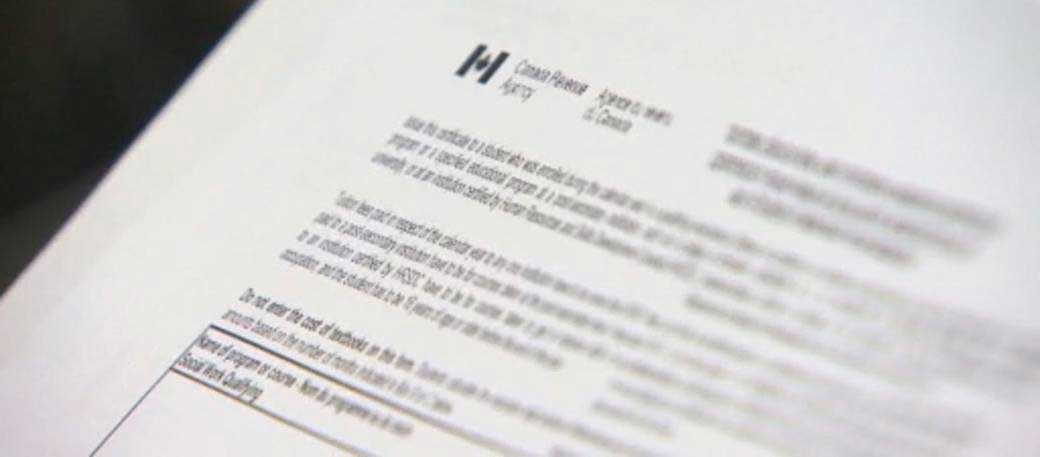
Even in the warped reality of the COVID-19 pandemic, Canadians must file their taxes to receive many of the benefits they’re entitled to. Around two million people could face interruptions to some federal and provincial payments if they wait too long to send in their 2019 tax returns, the Canada Revenue Agency warns.
“The CRA recognizes that in the current COVID pandemic environment it’s imperative for benefits to continue without disruption to Canadians,” says Heather Daniels, director-general of the Benefit Programs Directorate at the CRA.
But some Canadians will face payment delays if the CRA can’t process their 2019 returns before the beginning of September, Daniels notes.
Amid the novel coronavirus pandemic, Ottawa pushed the deadline for most individuals to file taxes from April 30 to June 1 while telling Canadians they had until Sept. 1 to pay any taxes owing without facing interest or penalties. (The tax-filing deadline for self-employed Canadians, however, remained June 15.)
Things to know when filing taxes during coronavirus pandemic
Even those who missed the postponed tax cutoff wouldn’t be immediately penalized, the federal government said. Canadians who’d been receiving the Canada Child Benefit (CCB) and the Goods and Services Tax/Harmonized Sales Tax (GST/HST) credit, for example, would continue to get payments until September 2020 even if they missed their filing deadline.
The CCB is a tax-free monthly benefit for eligible families with children under 18 years of age, while the GST/HST credit is a quarterly payment for low-income Canadians. Both are tax-free and may include payments from provincial and territorial programs.
Canadians, including those with no income, must file taxes in order to access credits such as the GST/HST tax credit and benefits like the Canada Child Benefit as well as the Old Age Security pension and the Guaranteed Income Supplement.
For late-filers, the CRA has been using 2018 tax-year information to calculate the CCB and GST/HST credit amounts for July, August and September, according to Daniels. But those payments could stop in October if the CRA doesn’t receive your 2019 return by early September, the CRA warns.
As of July 1, the CRA had yet to assess the 2019 tax files of some two million CCB and GST/HST credit recipients, Daniels tells Global News. That’s approximately 13 per cent of the 15 million Canadians who were eligible for those benefits based on their 2018 returns, she adds.
Daniels urges Canadians who haven’t done so yet to file their 2019 taxes electronically and sign up for direct deposit to ensure faster processing of tax refunds and avoid any interruption in benefit payments.
“I do worry that if people wait until the end of August to file — and they file on paper — there may be an issue,” she says.
In mid-May, the CRA warned of the probability of “significant delays” for paper filers due to “reduced staff onsite to support physical distancing.” Currently, however, CRA tax centres are working “at full capacity” processing paper returns, according to Daniels.
Source: Erica Alini, Global News July 21st, 2020.
Newsletters
No Results Found
The page you requested could not be found. Try refining your search, or use the navigation above to locate the post.
Events & Sponsorship
No Results Found
The page you requested could not be found. Try refining your search, or use the navigation above to locate the post.
Articles & Publications
Reporting income from Airbnb
Reporting Income from Airbnb Like other, more traditional, rentals, the Canada Revenue Agency (CRA) has specific rules surrounding the declaring of rental income, which you should become familiar with as soon as possible. What you need to know about earning income...
What is Income Splitting?
What is Income Splitting? By definition, income splitting involves diverting dividend income (and certain other types of income) from one family member to another member in a lower tax bracket resulting in substantial tax savings. By way of example, let’s take the...
Real Estate Tax Update
Real Estate tax update Canada Revenue Agency (CRA) has taken substantial changes to control real estate transactions. In recent years, CRA has increased its real estate audits, particularly in the Greater Vancouver and the Greater Toronto areas, where increased real...
Snowbirds
Snowbirds, March 1, 2019 The age-old Canadian tradition for retirees: when it starts getting cold outside, Canadians will “flock” to the warmer shores of the United States. Are there any tax considerations in the United States we need to be aware of when your retired...
Beware of scammers posing as CRA employees
Beware of scammers posing as CRA employees. Scammers posing as Canada Revenue Agency (CRA) employees continue to contact Canadians, misleading them into paying the false debt. These persistent scammers have created fear among people who now automatically assume that...